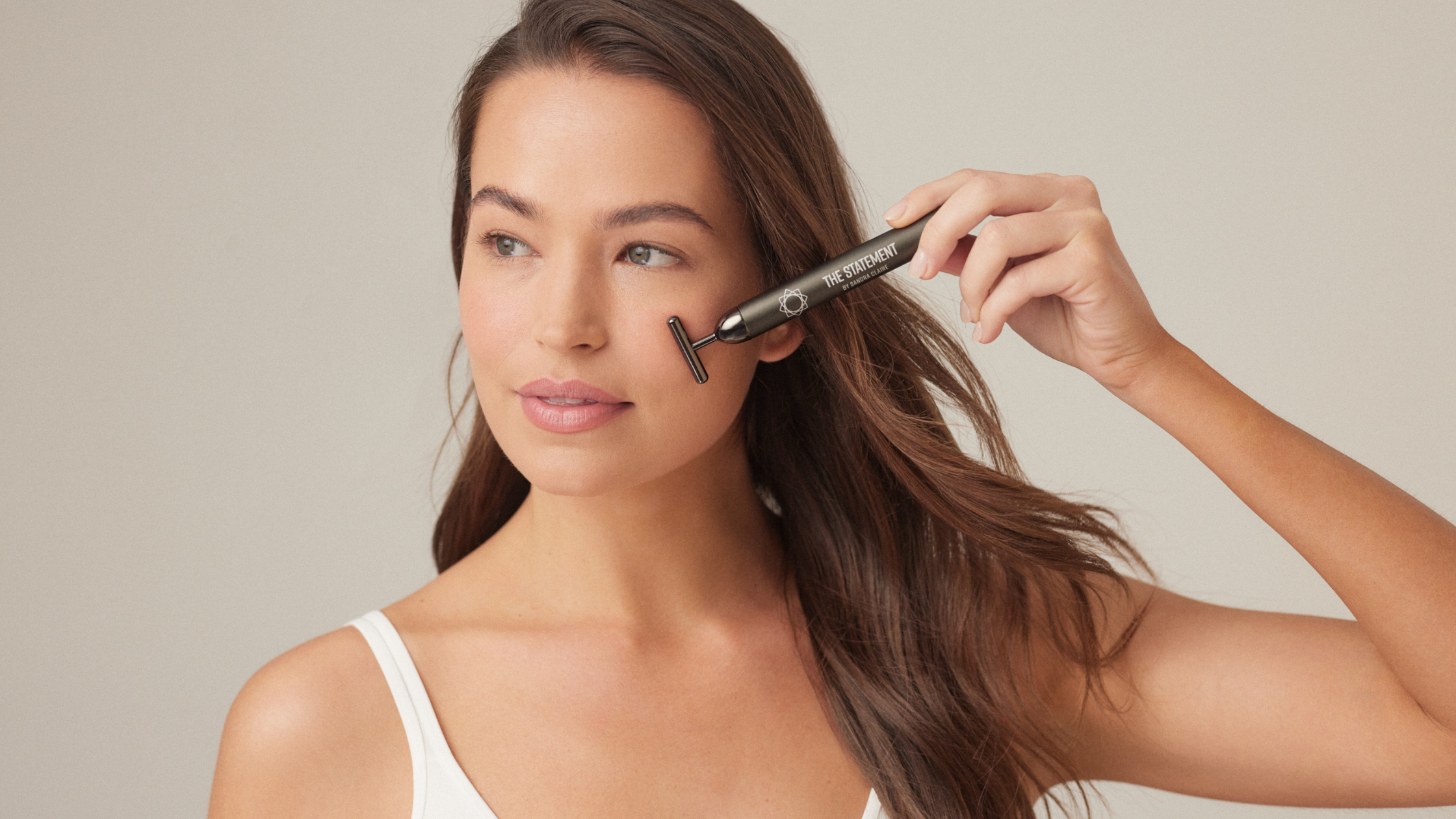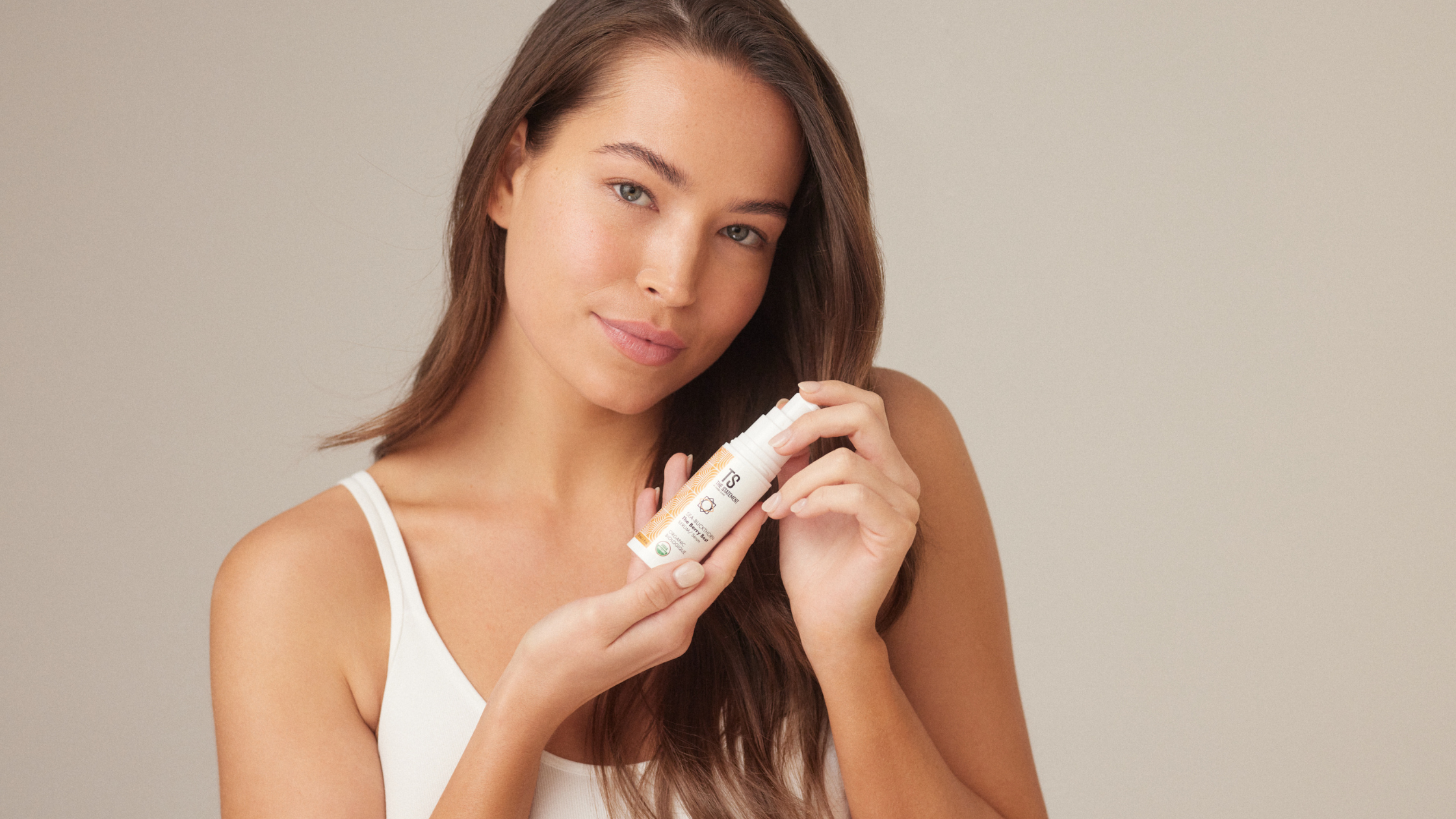
The Sweet Truth: How Overconsuming Sugar Impacts Your Skin
In recent years, the spotlight has been on sugar consumption and its effects on health. While most of us are aware of the link between sugar and issues like weight gain, diabetes, and heart disease, fewer people realize the significant impact sugar has on our skin. In this article, we go through the science behind sugar consumption and its detrimental effects on skin health.
The Glycation Process
The primary mechanism through which sugar affects the skin is glycation. Glycation occurs when sugar molecules bind to proteins and fats in the body, forming advanced glycation end products (AGEs). These AGEs are harmful compounds that can cause various health issues, including accelerated skin aging.
According to a study published in the Journal of Clinical and Aesthetic Dermatology, AGEs contribute to the degradation of collagen and elastin, two essential proteins that keep our skin firm and youthful (Baumann, 2007). When these proteins are damaged, the skin becomes less elastic, leading to wrinkles, sagging, and a dull complexion.
Sugar and Inflammation and Acne
Sugar consumption can also trigger inflammation, which exacerbates skin conditions like acne. High-glycemic foods, such as sugary snacks and drinks, cause rapid spikes in blood sugar levels. This spike prompts the body to produce more insulin, which in turn increases the production of androgen hormones. Elevated androgens can lead to increased sebum production, clogged pores, and, ultimately, acne.
A study in the American Journal of Clinical Nutrition found that individuals who consumed a low-glycemic diet experienced a significant reduction in acne lesions compared to those who consumed a high-glycemic diet (Smith et al., 2007). This suggests that controlling sugar intake can help manage and prevent acne outbreaks.
Sugar and Skin Hydration
Excessive sugar consumption can also negatively impact the skin's hydration levels. When blood sugar levels are consistently high, the body's ability to retain water is compromised, leading to dry and flaky skin. This dehydration affects the skin's appearance and ability to function as a barrier against environmental stressors.
Research published in the Journal of Dermatological Science indicates that a high-sugar diet can impair skin barrier function, making it more susceptible to irritants and infections (Del Rosso & Levin, 2011). Maintaining adequate hydration is crucial for healthy skin, and limiting sugar intake is vital in this process.
Sugar and Gut Health
It's important to note that sugar overconsumption doesn’t just impact the skin—it also affects gut health. High sugar intake can disrupt the balance of beneficial bacteria in the gut, leading to dysbiosis. This imbalance can cause inflammation that may manifest on the skin as conditions, including acne, eczema, and psoriasis. The body's systems are all interconnected, which means that there is a need for a balanced diet low in refined sugars to support gut and skin health by promoting a healthy microbiome.
A study published in Nutrients found that high sugar consumption can reduce microbial diversity in the gut, essential for a healthy immune system and skin (Mokkala et al., 2016). Maintaining a balanced diet low in refined sugars supports gut and skin health by promoting a healthy microbiome.
How Antioxidants Can Help Fight Sugar’s Effects on the Skin
If you have a sweet tooth, there's hope for your skin's health! Antioxidants are your allies in this battle. Vitamins A, C, and E, and other antioxidants, neutralize free radicals and shield the skin from damage.
Incorporating antioxidant-rich foods into your diet and using skincare products with these ingredients can help mitigate some of the damage caused by sugar.
That being said, keep in mind that a diet super high in sugar can still deplete the body’s antioxidant reserves, so balance is a must.
In a study published in the Journal of Investigative Dermatology, researchers found that high sugar intake reduces the effectiveness of antioxidants, further contributing to skin aging and inflammation (Pageon, 2010). While the effectiveness may be reduced, eating a diet that is particularly high in antioxidants would be beneficial.
Sugar Consumption Across Different Ages
Teenagers: Adolescence is marked by hormonal changes that can affect the skin, making teenagers particularly susceptible to acne. High sugar consumption during this time can exacerbate these issues. The combination of increased sebum production and inflammation due to high insulin levels can lead to severe breakouts and persistent acne.
Older Adults: Our skin's natural ability to repair and regenerate diminishes as we age. Overconsumption of sugar can accelerate this process, leading to more pronounced signs of aging, such as wrinkles, sagging, and dullness. Glycation and the resulting AGEs play a significant role in the breakdown of collagen and elastin, critical for maintaining skin firmness and elasticity.
How to Tell if You Have Sugar Face
'Sugar face' is a term used to describe the physical changes to the skin caused by excessive sugar consumption. It refers to a range of skin issues, including wrinkles, acne, dullness, dryness, puffiness, and redness, that can be exacerbated by high sugar intake.
If you have a diet high in sugar and are experiencing any of the following, sugar could be the cause: :
- Wrinkles and Sagging: Glycation damages collagen and elastin, causing the skin to lose its firmness and elasticity, resulting in wrinkles and sagging.
- Acne and Breakouts: Increased sebum production and inflammation due to high insulin levels can lead to frequent acne and breakouts.
- Dullness and Lack of Radiance: High sugar levels can make the skin dull and lacklustre, affecting cell turnover and hydration.
- Dryness and Flakiness: Dehydration caused by high blood sugar levels can result in dry, flaky skin.
- Puffiness and Redness: Sugar-induced inflammation can lead to puffy, red skin, often noticeable around the eyes and cheeks.
- Fine Lines and Sagging around the Mouth: Glycation can specifically impact the delicate skin around the mouth, leading to fine lines and a downward pull.
Dealing with Sugar Face
"Dealing with 'sugar face' involves a combination of dietary adjustments, skincare routines, and lifestyle changes," says Dr. Patricia Farris, a dermatologist and co-author of The Sugar Detox. Here are some expert-backed strategies to help combat the effects of sugar on your skin:
Eat well: The most effective way to combat 'sugar face' is to reduce your sugar consumption and focus on a balanced diet. A diet rich in whole foods, lean proteins, healthy fats, and plenty of vegetables can make a significant difference. Avoid high-glycemic foods and opt for low-glycemic alternatives. A balanced diet can transform your skin's health.
Stay Hydrated: Drinking plenty of water helps flush toxins and hydrate the skin. Proper hydration supports skin elasticity and a healthy complexion. Additionally, regular exercise can improve blood circulation, which in turn can enhance the delivery of nutrients to the skin, promoting a healthy complexion.
Physiological Benefits of Hydration: Water is essential for maintaining the skin's moisture balance. It helps transport nutrients to skin cells and removes toxins. Adequate hydration ensures that skin cells are plump, which reduces the appearance of fine lines and wrinkles. A Clinical, Cosmetic and Investigational Dermatology study showed that increased water intake significantly improved skin hydration and elasticity (Palma et al., 2015). Hydration also helps maintain the skin's barrier function, protecting against environmental stressors and pathogens.
Use Antioxidant-Rich Skincare Products: Incorporate products containing antioxidants like vitamin C, vitamin E, and even niacinamide into your skincare routine. These ingredients help combat free radicals and support skin repair.
Exfoliate Regularly: Exfoliation helps remove dead skin cells and promotes cell turnover. Using gentle exfoliants can improve skin texture and reduce the appearance of fine lines.
Moisturize: Keeping the skin moisturized is essential, mainly if sugar consumption has led to dryness. Look for moisturizers with hyaluronic acid (or alternatives), glycerin, and ceramides to lock in moisture. AHAs and BHAs can certainly help here, as they are moisture boosters!
Manage Stress: High stress levels can exacerbate the effects of sugar on the skin—practice stress management techniques such as meditation, yoga, or deep breathing exercises. Moreover, let us not forget about the tried-and-true Brisk Walk.
Get Enough Sleep: Quality sleep is crucial for skin repair and regeneration. Aim for 7-9 hours of good quality sleep per night to support overall skin health.
Consult a Dermatologist: For personalized advice and treatments, consider consulting a dermatologist. They can recommend specific skincare products and treatments tailored to your skin's needs.
Alternatives to Sugar
Changing consumption habits is essential for both skin and overall health. Here are some healthy alternatives to sugar:
Natural Sweeteners: Use natural sweeteners like honey, maple syrup, and agave nectar. These contain antioxidants and have a lower glycemic index compared to refined sugar.
Fruits: Incorporate more fruits into your diet for natural sweetness. Berries, apples, and citrus fruits are great options that also provide vitamins and fiber.
Stevia and Monk Fruit: These natural, zero-calorie sweeteners are excellent substitutes for sugar in beverages and recipes.
Spices: Use spices like cinnamon and vanilla to add sweetness to foods and drinks without the need for added sugar.
Improved Nutrition to Combat Sugar Face
If you’re experiencing sugar face, one of the most important things you can do to overcome it is to improve your nutrition. Here are some dietary recommendations for healthy, gorgeous skin:
Eat a Balanced Diet: A diet rich in vegetables, fruits, whole grains, lean proteins, and healthy fats provides essential nutrients that support skin health.
Increase Fiber Intake: Foods high in fiber, such as fruits, vegetables, and whole grains, help regulate blood sugar levels, support gut health and balance hormones.
Incorporate Healthy Fats: Healthy fats found in avocados, nuts, seeds, and fatty fish (like salmon) contain omega-3 fatty acids that reduce inflammation and support skin barrier function.
Consume Probiotic-Rich Foods: Foods like yogurt, kefir, sauerkraut, and kimchi support a healthy gut microbiome, which in turn benefits the skin.
Stay Hydrated: As mentioned earlier, adequate water intake is crucial for maintaining skin hydration and elasticity.
Limit Processed Foods: Processed foods often contain high levels of added sugars and unhealthy fats that can exacerbate skin issues.
Protocol to Offset Sugar Consumption Effects
In the event of excessive sugar consumption, follow this protocol to help reduce its impact on your skin:
Hydrate Immediately: Drink plenty of water to help flush out toxins and support hydration. Aim for at least 8-10 glasses of water throughout the day.
Eat Antioxidant-Rich Foods: Incorporate foods high in antioxidants, such as berries, dark leafy greens, nuts, and seeds, to combat oxidative stress and support skin repair.
Balance Blood Sugar: Eat a balanced meal with protein, healthy fats, and fiber to stabilize blood sugar levels. Avoid further high-glycemic foods.
Take a Probiotic: Consuming a probiotic supplement or probiotic-rich foods can help support gut health and reduce inflammation. Your skin will thank you!
Engage in Physical Activity: Exercise helps improve circulation, supports detoxification processes, and reduces inflammation. Even a 10 minute brisk walk after any meal will make a significant difference in the management of sugar metabolism and insulin regulation.
Practice Stress Management: Engage in stress-reducing activities such as yoga, meditation, or deep breathing to help mitigate the inflammatory effects of sugar. Just a hot tip- even walking can be an effective tool in managing stress. Get those steps in!
Use a Hydrating Face Mask: Apply a hydrating, antioxidant-rich face mask to soothe and replenish the skin. You can try The Statement’s Sili-Mask here, it’s a sustainable alternative to sheet masks, helping your skin better absorb hydrating and nourishing ingredients from your serums.
Follow a Skincare Routine: Cleanse, exfoliate, and moisturize your skin regularly, using products that support hydration and skin repair. Don’t forget the sunscreen!
Sugar Face Skincare Routine
If you’re experiencing sugar face, eating a balanced diet is a must, but a great skincare routine can make a world of difference as well. Here is our recommended skincare routine for helping your complexion look fabulous and reducing the effects of sugar:
Step 1 – Green Clean Cleanser: This foaming facial cleanser will thoroughly cleanse your skin without leaving it feeling dry or tight. It’s filled with anti-inflammatory ingredients, which are great for calming the skin and overcoming some of the effects of sugar face, such as redness. It also includes antioxidants with Vitamins A, E and C, which help defend, nourish, soothe and hydrate the skin while maintaining a healthy skin barrier. Vitamin C also helps stimulate collagen production, while maple leaf extract helps keep the skin plump and bouncy, particularly important if you’re experiencing signs of aging due to sugar intake.
Step 2 – The Berry Best Serum: Next, you’ll want to choose a serum that is filled with antioxidants and nourishing ingredients to improve the health and appearance of your skin. The Berry Best Serum is a fantastic option here. It uses sea buckthorn, which has up to 15 times the amount of vitamin C as an orange. Vitamin C is one of the best antioxidants for the skin because it protects against aging and skin damage and synthesizes collagen in the skin for better elasticity and skin tone. This serum also delivers important skin ingredients like fatty acids and vitamin A, which can also help protect your skin from the effects of sugar.
Step 3 – The Glowry Stick: To help combat some of the puffiness from high sugar intake, treat yourself to a session with The Glowry Stick. It’s a tool that uses sonic vibrations to lightly massage your face and define your natural contours. It’s great for lymphatic drainage, depuffing, and improving circulation.
Step 4 – SkinTrinsic Moisturizer: Now, you want to lock it all in with a nourishing and powerful moisturizer. The Statement’s SkinTrinsic Moisturizer is truly organic and formulated with the richest emollients, nutrients, and antioxidants, which are a must-have in the fight against sugar. Shea butter and aloe vera deeply hydrate and soothe, while babassu oil and turkey tail mushroom deliver antioxidants and anti-inflammatory benefits to restore skin health.
Step 5 (AM routine) – It’s Sun-Day! Serum Sunscreen: Every morning routine needs to finish with a great SPF. The Statement’s It’s Sun-Day! Serum Sunscreen is the best option here. Our innovative SPF 50 formula protects your skin from the sun while offering all of the nourishing properties of a serum. Infused with hydrating and antioxidant-rich ingredients, like vitamin C, It’s SUN-DAY! Serum Sunscreen helps to hydrate and calm your skin. It’s perfect for skin that’s been affected by sugar.
Conclusion
The evidence is clear: overconsuming sugar, especially refined sugars, profoundly impacts skin health. From accelerating the aging process through glycation to exacerbating acne and compromising hydration, sugar's effects on the skin are extensive and scientifically backed.
By being mindful of our sugar intake and prioritizing a balanced diet rich in antioxidants, we can protect and heal our skin and maintain a youthful complexion. And remember, a skincare routine filled with antioxidants and other nourishing ingredients can make a big difference in the health and appearance of your skin!
References
Baumann, L. (2007). Skin ageing and its treatment. Journal of Clinical and Aesthetic Dermatology, 24(4), 297-302.
Smith, R. N., Mann, N. J., Braue, A., Mäkeläinen, H., & Varigos, G. A. (2007). A low-glycemic-load diet improves symptoms in acne vulgaris patients: a randomized controlled trial. American Journal of Clinical Nutrition, 86(1), 107-115.
Del Rosso, J. Q., & Levin, J. (2011). The clinical relevance of maintaining the functional integrity of the stratum corneum in both healthy and disease-affected skin. Journal of Dermatological Science, 61(3), 123-124.
Mokkala, K., Röytiö, H., Munukka, E., et al. (2016). Gut microbiota composition and fecal metabolic profile in overweight pregnant women are associated with excess gestational weight gain. Nutrients, 8(7), 467.
Pageon, H. (2010). Reaction of glycation and human skin: the effects on the skin and its components, reconstructed skin as a model. Pathologie Biologie, 58(3), 226-231.
Palma, L., Marques, L. T., Bujan, J., & Rodrigues, L. M. (2015). Dietary water affects human skin hydration and biomechanics. Clinical, Cosmetic and Investigational Dermatology, 8, 413-421.
Farris, P. (n.d.). The Sugar Detox.




Comments